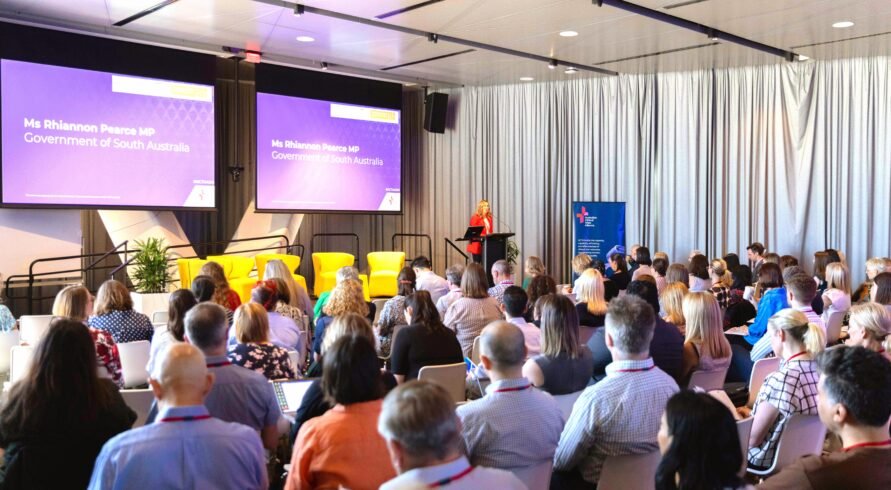ACTA Insights with Audrey
Arriving in Adelaide for the ACTA Annual Science Meeting in November, I was immediately impressed by the friendly people and the walkability of the central city. It was nice to stroll around with ease and reflect on how we’ve found ways to adapt and evolve in parallel with the pandemic.
This year’s theme of ‘Implementing Evidence into Practice: how do we plan, engage and act to ensure our trials have the greatest impact and change practice’ meets the epicentre of our world at Spiral. And that of our clients.
After two years of online meetings, this year’s event was held in the SAHMRI building, distinguishable by its impressive honeycomb exterior. Aptly enough, internally it was as busy as a hive. The South Australian Health and Research Institute is the largest health and medical research precinct in the Southern Hemisphere and the ideal location for this year’s ASM.
Attending events like the ACTA ASM can be intense! A whirlwind of activity, new technology, new connections and learning. The trip back home across the Tasman allowed me to decant my thoughts and reflect on the experience and how this might relate to our work and the work of our networks.
Diversity was consistently touched upon, specifically how it can be enabled and encouraged with more intent. It was a privilege to hear Cliffy Tangku Manaitya Wilson, from Kuma Kaaru Cultural Services, welcome us in his people’s language and prompt thinking about how we could change Spinnaker for Māori and Aboriginal populations. Language is a vital component to consider. And more importantly, how do we create changes in our software that take into account cultural considerations? How can we ensure that we are fully engaged with the medically underserviced?
The future of clinical trials seems to be changing. There was a lot of discussion around the prospect of consumer-led trials where advisory groups ask clinicians to "pitch". It was incredible to see a lot of patients and carers (consumers) in attendance and this triggered my thinking around the trials we have been involved in. For example, how would we do PANORAMIC differently if we were consumer-focused?
Listening to Colin McArthur, Intensive Care Physician, speak about Adaptive Platform Trials, specifically in relation to the ACTA Trial of the year, REMAP-CAP, was a highlight. Spiral has been involved in REMAP-CAP for over five years now, dedicating staff members to developing and delivering the software needed for this important critical care trial. To hear it spoken about on an international stage like that, knowing that we have made a tangible contribution, was truly humbling.
Events like this are crucial for fostering connections within the industry. Our Spiral-sponsored coffee cart was well-utilised during breaks in the day's sessions, giving everyone the opportunity to mix, mingle, swap insights and reconnect with one another. I took the opportunity to meet members of the ACTA team and board as well as notable figures from current trials such as Grace McPhee and Lauren Barina, both from the University of Melbourne and both involved in the ASCOT trial. It was also a pleasure meeting Lisa Higgins (Monash University) and Sarah Coggan (The George Institute) for the first time in person.
It was clear that this group of passionate clinical researchers, policymakers and government and consumer reps all had one thing in common: the drive to improve clinical trials.
While I left the conference with many new questions, I felt this was a positive outcome. If we are not always questioning the work we do then we can never leave room for improvement.
LEARN MORE ABOUT ACTA AND THE IMPACT OF CLINICAL TRIALS


